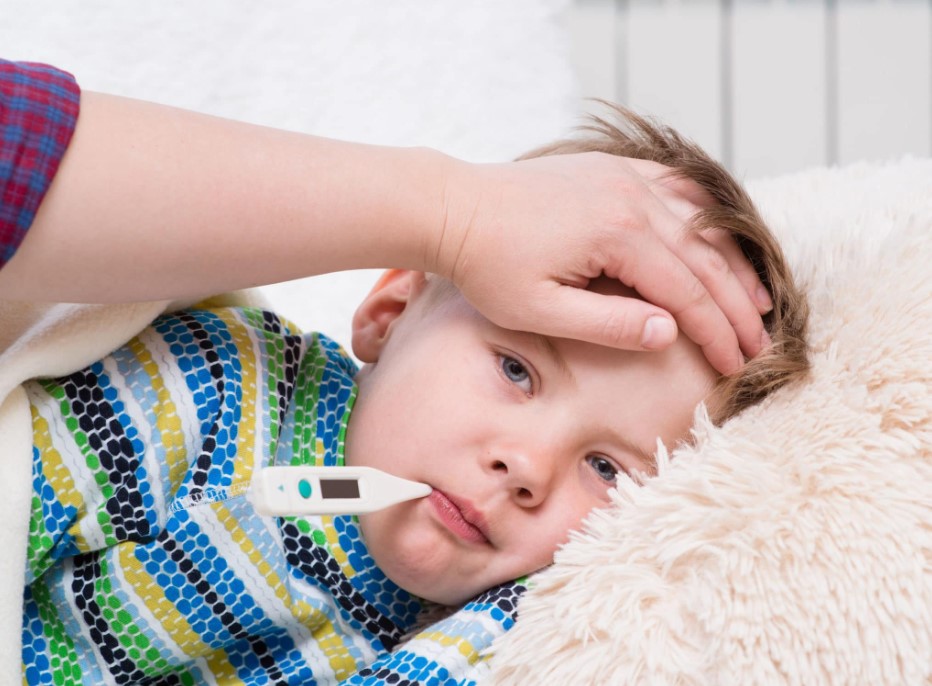
Managing Children’s Fever in Singapore: A Guide for Parents
Fever in children is a common occurrence and a frequent cause of concern for parents. In Singapore, where tropical infections and a fast-paced lifestyle are prevalent, knowing how to manage children’s fever effectively is crucial. This article provides a comprehensive guide on understanding and managing children’s fever in Singapore, offering practical advice and insights for concerned parents.
Understanding Fever in Children
Fever is a natural response of the body to infection or illness, characterized by an elevated body temperature. In children, a fever is typically defined as a body temperature above 37.5°C when measured orally, or above 38°C when measured rectally. While fever itself is not an illness, it is a symptom indicating that the body is fighting off an infection.
Common Causes of Fever in Singapore
In Singapore’s tropical climate, children are exposed to various infections that can cause fever. Some common causes include:
- Viral Infections: Conditions like the common cold, influenza, and hand, foot, and mouth disease are frequent and often lead to fever.
- Bacterial Infections: Infections such as strep throat, urinary tract infections, and bacterial pneumonia can cause significant fever.
- Dengue Fever: Due to the presence of Aedes mosquitoes, dengue fever is a notable risk, especially during the wet season.
- Other Illnesses: Conditions like roseola, a viral infection common in young children, can cause high fever followed by a rash.

Symptoms and When to Seek Medical Attention
While fever can make children uncomfortable, it is usually not dangerous on its own. Symptoms that accompany fever may include sweating, chills, fatigue, loss of appetite, and dehydration. Parents should be vigilant and seek medical advice if their child exhibits any of the following symptoms along with fever:
- Persistent fever lasting more than three days.
- High fever with a temperature exceeding 40°C.
- Severe symptoms such as difficulty breathing, persistent crying, unusual drowsiness, or seizures.
- An unexplained rash accompanying the fever.
Managing Children’s Fever at Home
For mild fevers, parents in Singapore can take several steps to manage their child’s symptoms effectively at home:
Hydration: Ensuring the child drinks plenty of fluids is crucial to prevent dehydration. Offer water, oral rehydration solutions, or clear soups to keep them hydrated.
Comfortable Environment: Dress the child in lightweight clothing and keep the room cool to help lower body temperature. Using a fan or air conditioning can also be beneficial.
Rest: Encourage the child to rest, as this aids the body’s efforts to fight off the infection. Ensure they get plenty of sleep and avoid strenuous activities.
Medication: Use age-appropriate fever-reducing medications such as paracetamol or ibuprofen. Always follow the dosage instructions provided by the manufacturer or your doctor. Do not use aspirin in children due to the risk of Reye’s syndrome.
When to Consult a Pediatrician
Singapore’s healthcare system is highly accessible, and parents are encouraged to consult a pediatrician if they have concerns about their child’s fever. Situations that warrant professional medical advice include:
- Infants and Young Babies: Fever in babies younger than three months should always be evaluated by a doctor, as they are more vulnerable to serious infections.
- Underlying Health Conditions: Children with chronic illnesses or weakened immune systems require prompt medical attention when they develop a fever.
- Persistent or Worsening Symptoms: If the fever does not improve with home care or is accompanied by worsening symptoms, seek medical advice immediately.
Preventative Measures
Preventing illnesses that cause fever is key to reducing the incidence of pediatric fever. Effective preventative measures include:
Vaccinations: Ensure children receive all recommended vaccinations according to the Singapore National Immunization Schedule. Vaccines are essential in protecting against various infectious diseases.
Hygiene Practices: Encourage regular handwashing, especially before meals and after using the toilet. Good hygiene practices help prevent the spread of infections.
Avoiding Sick Contacts: Limit exposure to individuals who are ill, particularly during flu season or dengue outbreaks. Keeping children away from sick contacts can reduce their risk of catching infections.
Mosquito Control: Use mosquito repellent, install screens on windows, and eliminate standing water to reduce the risk of dengue fever. Preventing mosquito bites is crucial in dengue-endemic areas.
Conclusion
Managing children’s fever in Singapore involves understanding the causes, recognizing symptoms, and knowing when to seek medical attention. By following the guidelines outlined in this article, parents can effectively manage their child’s fever and ensure their well-being.
Regular consultations with healthcare professionals and staying informed about best practices in fever care are essential for navigating this common health concern. With the right knowledge and proactive measures, parents in Singapore can confidently handle their child’s fever and help them recover swiftly.


